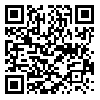Volume 32, Issue 4 (Autumn 2024)
Avicenna J Nurs Midwifery Care 2024, 32(4): 320-330 |
Back to browse issues page
Ethics code: IR.QUMS.REC.1400.178
Clinical trials code: IRCT20210803052064N1
Download citation:
BibTeX | RIS | EndNote | Medlars | ProCite | Reference Manager | RefWorks
Send citation to:



BibTeX | RIS | EndNote | Medlars | ProCite | Reference Manager | RefWorks
Send citation to:
mohammadi F, ranjbaran M, bigdeli H, jourabchi Z. The Effect of an Educational Intervention Based on the Health Belief Model on the Level of Breastfeeding Self-efficacy in Mothers Referring to Qazvin Health Centers: A Randomized Clinical Trial Study. Avicenna J Nurs Midwifery Care 2024; 32 (4) :320-330
URL: http://nmj.umsha.ac.ir/article-1-2903-en.html
URL: http://nmj.umsha.ac.ir/article-1-2903-en.html
1- Student Research Committee, Qazvin University of Medical Sciences, Qazvin, Iran
2- Metabolic Diseases Research Center, Research Institute for Prevention of Non-Communicable Diseases, Qazvin University of Medical Sciences, Qazvin, Iran
3- Metabolic Diseases Research Center, Research Institute for Prevention of Non-Communicable Diseases, Qazvin University of Medical Sciences, Qazvin, Iran ,zinat.jourabchi@ymail.com
2- Metabolic Diseases Research Center, Research Institute for Prevention of Non-Communicable Diseases, Qazvin University of Medical Sciences, Qazvin, Iran
3- Metabolic Diseases Research Center, Research Institute for Prevention of Non-Communicable Diseases, Qazvin University of Medical Sciences, Qazvin, Iran ,
Abstract: (3223 Views)
Background and Objective: The increasing of early discontinuation of exclusive breastfeeding in Iran has been observed in recent years. Enhancing maternal awareness is a pivotal factor in advancing exclusive breastfeeding rates. One of the best teaching methods about health challenges is the health belief model. The primary objective of this study was to determine the impact of an educational intervention grounded in the health belief model on maternal breastfeeding self-efficacy.
Materials and Methods: This research constitutes a randomized controlled clinical trial involving 120 pregnant women who sought care at Qazvin health centers. Through the random allocation method of 4 blocks, the participants were assigned to either the intervention group or the control group. Commencing from the 36th week of pregnancy, the intervention group underwent 4 virtual breastfeeding training sessions, structured around the principles of the health belief model. Meanwhile, the control group received standard prenatal care. Prior to delivery and at 1, 4, and 6 weeks postpartum, participants completed the breastfeeding self-efficacy questionnaire and health belief model assessments. Data analysis was carried out tilizing SPSS26 software, with a predetermined significance level of 0.05 for all statistical tests.
Results: Following the intervention, a statistically significant difference was noted in the mean values between the two cohorts with regard to the components of the health belief model (p<0.05). Furthermore, the mean self-efficacy ratings during the initial week post-intervention were 52.23±4.65 in the control group and 55.8±4.09 in the experimental group, which was statistically significant (p<0.001).
Conclusion: Educational intervention utilizing the health belief model has demonstrated the potential to enhance the level of breastfeeding self-efficacy among mothers. Consequently, healthcare professionals can consider employing this approach as a dependable and easily accessible educational tool.
Materials and Methods: This research constitutes a randomized controlled clinical trial involving 120 pregnant women who sought care at Qazvin health centers. Through the random allocation method of 4 blocks, the participants were assigned to either the intervention group or the control group. Commencing from the 36th week of pregnancy, the intervention group underwent 4 virtual breastfeeding training sessions, structured around the principles of the health belief model. Meanwhile, the control group received standard prenatal care. Prior to delivery and at 1, 4, and 6 weeks postpartum, participants completed the breastfeeding self-efficacy questionnaire and health belief model assessments. Data analysis was carried out tilizing SPSS26 software, with a predetermined significance level of 0.05 for all statistical tests.
Results: Following the intervention, a statistically significant difference was noted in the mean values between the two cohorts with regard to the components of the health belief model (p<0.05). Furthermore, the mean self-efficacy ratings during the initial week post-intervention were 52.23±4.65 in the control group and 55.8±4.09 in the experimental group, which was statistically significant (p<0.001).
Conclusion: Educational intervention utilizing the health belief model has demonstrated the potential to enhance the level of breastfeeding self-efficacy among mothers. Consequently, healthcare professionals can consider employing this approach as a dependable and easily accessible educational tool.
Type of Study: Original Research |
Subject:
Education in Nursing and Midwifery
Received: 2024/01/18 | Accepted: 2024/06/22 | Published: 2024/12/29
Received: 2024/01/18 | Accepted: 2024/06/22 | Published: 2024/12/29
Send email to the article author
| Rights and permissions | |
 |
This work is licensed under a Creative Commons Attribution-NonCommercial 4.0 International License. |







 gmail.com
gmail.com